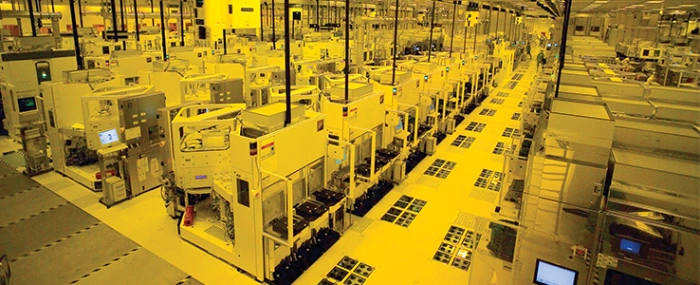
Top 10 foundries experience 7.9% QoQ growth in 3Q23
The third quarter of 2023 was a dynamic quarter for the global foundry industry – marked by an uptick in urgent orders for smartphone and notebook components, according to TrendForce’s research.
Healthy stock levels and the launching of new Android and iPhone smartphones in 2H23 were the main drivers of this spike. These were primarily rush orders, even though inflation risks and market uncertainties persisted. The high-cost 3nm manufacturing process used by TSMC and Samsung also helped to boost revenues; as a result, the 3Q23 value of the top ten global foundries increased by 7.9% on a QoQ basis to roughly USD 28.29 billion.
With the anticipated year-end holiday demand, 4Q23 is expected to maintain the influx of urgent orders for laptops and smartphones, especially for smartphone components. TrendForce states that pre-sales season stockpiling for Chinese Android smartphones appears to be slightly better than projected, despite the end-user market's slow recovery, this is due to the sustained interest in new iPhone models and the desire for mid-to-low range 5G and 4G phone APs. This scenario suggests a continued upward trend for the top ten global foundries in Q4, potentially exceeding the growth rate seen in Q3.
TSMC’s 3nm process contributes substantially to revenue as it claims 58% market share in Q3
TSMC’s revenue grew by 10.2% – reaching US$17.25 billion – supported by strong demand in the PC sector and for smartphone components, including new iPhones and Android devices, as well as urgent orders for restocking mid-to-low end 5G and 4G inventories. TrendForce points out the company's 3nm process alone contributed 6% to its Q3 revenue, with advanced processes (≤7nm) accounting for nearly 60% of its total revenue.
Strong growth was also seen at Samsung Foundry, where sales in Q3 increased by 14.1% on a QoQ basis to USD 3.69 billion. Orders for Qualcomm's 5G modems, mid-to-low range 5G AP SoC, and sophisticated 28 nm OLED DDI processes are said to have been the main drivers of this.
In Q3, GlobalFoundries continued to operate steadily, with sales almost equal to that of the previous quarter – around USD 1.85 billion. The company's revenue was predominantly supported by the home and industrial Internet of Things (IoT) sectors, which accounted for approximately 20% of its total revenue. Furthermore, a significant portion of this revenue boost was due to orders from the US aerospace and defence sectors.
| Ranking | Company | Revenue | Market share | |||
| 3Q23 | 2Q23 | QoQ | 3Q23 | 2Q23 | ||
| 1 | TSMC | 17,249 | 15,656 | 10.2% | 57.9% | 54.4% |
| 2 | Samsung | 3,690 | 3,234 | 14.1% | 12.4% | 11.7% |
| 3 | GlobalFoundries | 1,852 | 1,845 | 0.4% | 6.2% | 6.7% |
| 4 | UMC | 1,801 | 1,833 | -1.7% | 6.0% | 6.6% |
| 5 | SMIC | 1,620 | 1,560 | 3.8% | 5.4% | 5.6% |
| 6 | HuaHong Group | 766 | 845 | -9.3% | 2.6% | 3.0% |
| 7 | Tower | 358 | 357 | 0.3% | 1.2% | 1.3% |
| 8 | VIS | 333 | 321 | 3.8% | 1.1% | 1.2% |
| 9 | IFS | 311 | 232 | 34.1% | 1.0% | 0.8% |
| 10 | PSMC | 305 | 330 | -7.5% | 1.0% | 1.2% |
| Total top 10 | 28,286 | 26,213 | 7.9% | 95% | 94% | |

